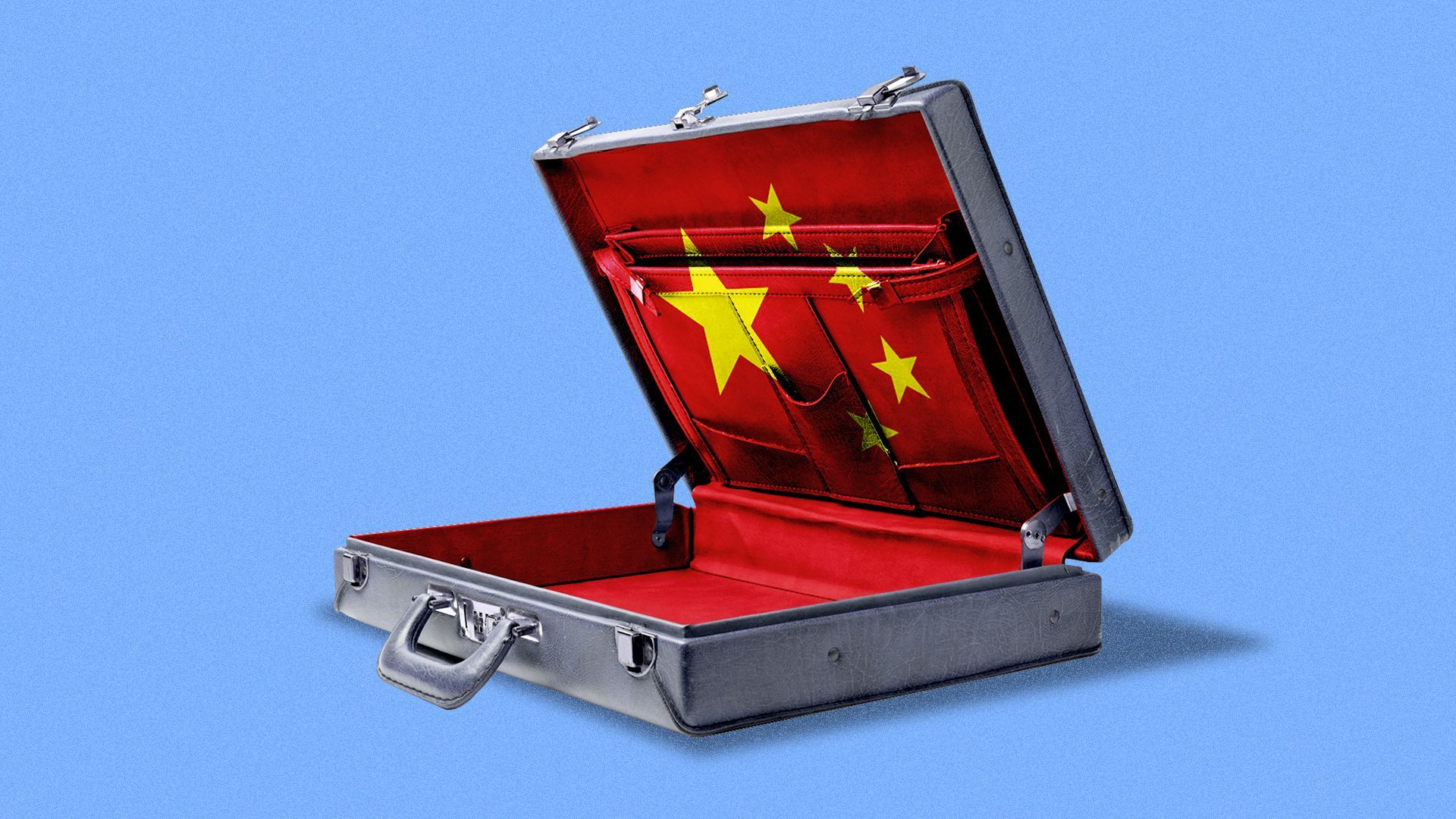
Illustration: Annelise Capossela/Axios
The Energy Department has rejected Microvast's bid to get federal infrastructure funding for a battery tech plant.
Why it matters: We're reached a point where doing substantial business in China is now a potential liability for companies seeking U.S. backing.
Driving the news: The Energy Department confirmed in a statement sent to Axios that it "elected to cancel negotiations" with Microvast around using fresh infrastructure law funds for a Tennessee battery part plant.
- The talks ended after Sen. Joe Manchin joined a chorus of GOP lawmakers to criticize the Biden team for initially selecting Microvast.
- They pointed to its presence in China, statements in financial disclosures about being subject to Chinese laws and regulations, and national security concerns about companies doing business there generally.
- DOE "maintains a rigorous review process prior to the release of any awarded funds, and it is not uncommon for entities selected to participate in award negotiations under a DOE competitive funding opportunity to not ultimately receive an award," said department spokeswoman Charisma Troiano.
Between the lines: The Microvast story is a win for the "decoupling" crowd but reveals that almost anyone can kill a U.S. climate investment with anti-China politics.
- Microvast is headquartered in Texas, calls itself an American company and said it was pivoting to the U.S. market.
- It's possible DOE saw something it didn't like after the initial Microvast announcement, or it became too politically toxic to give the firm money. It could've been a mix of both.
Reality check: Many firms key to the energy transition have ties to China today, partially because the U.S. lagged on investments in the energy transition.
The bottom line: There may be a NatSec upside to this denial. But we're wondering whether this is a precedent that'll undermine other would-be grantees.
